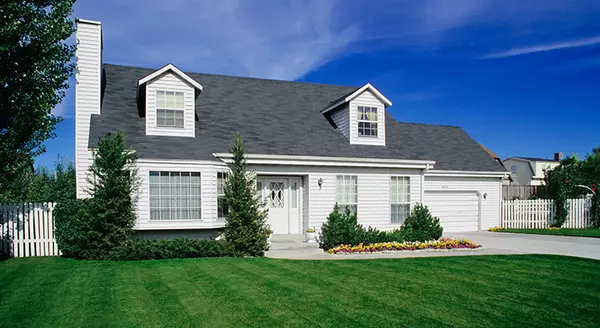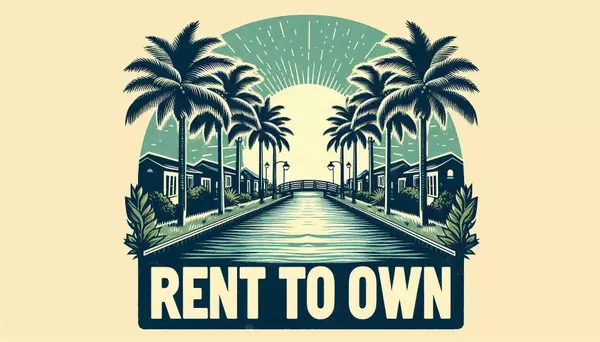
Moving to Florida? Your Ultimate Relocation Guide.
Packing up and moving to Florida is an exciting adventure full of important decisions. Whether you're moving across town or to a new city in the Sunshine State, this guide will provide you with the essential steps and insights to make your relocation as smooth as possible. Here’s everything you need to tackle (or may have missed!) so your big move doesn’t mean a big headache, only a big adventure! Selling Your Current Home If possible, selling your current home should be a high priority. Depending on your timeline, you can work with a real estate agent to get your home on the market as soon as possible. Here are some steps to get your home sale on the fast track: Get an Appraisal or Expert Assessment: Identify areas that could be quickly improved to increase the value of your home. Perform Minor Repairs: Ensure that any minor repairs are completed and learn if any major repair needs will surface during inspections. Stage Your Home: Invest in basic cosmetic improvements, such as paint or landscaping, to make your home more appealing. Professional Photos and Videos: High-quality visuals can help your home show virtually and attract more buyers. Decide on the Sale Price: Determine the sale price you need to happily move forward into your new community. Buying a New Home in Florida Moving to Florida comes with unique challenges and opportunities. From the outset, you’ll want to learn about comparable home prices and the cost of living in your new area. Here are some criteria and questions to consider when buying a new home: Neighborhood: Ensure it’s a safe neighborhood with a good reputation and acceptable commute distance. Price Range: Make sure the home is within your budget. Access to Amenities: Look for nearby amenities that are important to you. Property Taxes: Understand the property tax rates in your new area. School System: If you have children, research the local school system. Utilities and HOAs: Check on utilities and any Homeowners Association fees. Waste Management: Find out about local waste management services. Community Expectations: Learn about community expectations and upkeep. Home Management Resources: Identify resources like lawn care and housekeeping services. Final Logistics As you wrap up life in your old city and move to a new one, there are some essential final logistics to manage. Here’s what to keep on your list: Final Closing/House Sale: Ensure all paperwork and financial transactions are completed. Hand Over Keys and Clean Home: Provide keys and any necessary information about appliances, and clean the home for the new owners. Change Utilities: If required, arrange for utility services to be transferred or canceled. Set Up Mail Forwarding: Ensure your mail is forwarded to your new address. Arrange Movers and Storage: Book movers and, if necessary, a storage unit. Temporary Housing: If there’s a gap between your current home and next home, set up temporary housing or rent. Pack for a Short Trip: Prepare for the immediate needs during the transition. Set Up New Utilities and Internet: Arrange for utilities and internet services at your new home. Change Locks: Reprogram or change the locks for security. Get New Driver’s License and Plates: Obtain a new driver’s license and license plates if moving to a new state. Ready to Make the Move? I’ll be happy to join you as you prepare for this adventure. I have the inside scoop to get you where you're going. Contact me today to get started! For more tips on buying a home, check out our previous blog post, 6 Essential Things to Check Before Buying a Home. Elizabeth Steele PAProfessional Real Estate ConsultantMVP RealtyEmail: esteelerealestate@gmail.comPhone: 239-370-5988

Should You Sell Your Home Fast for Cash?
Selling your home quickly for cash can be an enticing option, especially if you need to move fast or want to avoid the hassle of traditional home selling. However, it’s essential to understand both the benefits and drawbacks before making your decision. Here's a detailed look at what it means to sell your home for cash and whether it's the right choice for you. What Does It Mean to Sell Your Home for Cash? Selling your home for cash means accepting an offer from a buyer who can pay the full amount upfront without needing to secure financing. This often involves: Online House-Selling Platforms: Websites where you can list your home for cash offers. iBuyers (Instant Buyers): Companies that use technology to make fast offers on homes. Buy and Hold Investors: Buyers who purchase homes to rent out long-term. Home Flippers: Buyers who renovate and resell homes for a profit. These buyers typically bypass the traditional selling process, allowing you to avoid home prep, staging, showings, and a longer closing time. 7 Steps to Sell Your Home for Cash Request an Offer: List your home "as-is" and receive offers without needing to make repairs. Evaluation of Home Value: The buyer assesses your home, possibly sending a representative for an in-person evaluation. Contract Review: Review and decide whether to accept the offer. Inspections: The buyer may perform inspections to assess the condition of your home. Fast Closing: Without the need for financing approval, the closing can be as fast as 30 days. Clear Title: Ensure a clear title free of unpaid taxes or fees. Payment Disbursed: Receive cash via wire transfer before the close of escrow date. Advantages of Selling for Cash Speed and Convenience: Selling for cash is typically faster, avoiding lengthy processes like staging and showings. Certainty: With no financing contingencies, the sale is more likely to close as planned. Financial Benefits: Save money on repairs, avoid foreclosure, or get quick cash for a down payment on your next home. Disadvantages of Selling for Cash Lower Sale Price: Without proper marketing and staging, you may not get top dollar for your home. Repair Costs Reflected in Sale Price: The buyer will likely deduct the estimated repair costs from their offer. Difficult Negotiations: Cash buyers are often business-focused and less willing to negotiate on price. Conclusion Selling your home for cash can be a quick and convenient option, but it’s crucial to weigh the pros and cons carefully. Make sure to consider your specific situation and consult with a real estate professional. With experience working with both cash buyers and sellers, I can guide you through the decision-making process and help you get the best deal possible. For more tips on selling your home, check out our previous blog post, Home Seller Negotiation Secrets Ready to Explore Your Options? If you’re considering selling your home for cash or want to explore other selling strategies, contact Elizabeth Steele at MVP Realty. Let’s find the best solution for your needs! Elizabeth Steele PAProfessional Real Estate ConsultantMVP RealtyEmail: esteelerealestate@gmail.comPhone: 239-370-5988

How Big of a Home Do You Need?
Buying a home is a significant step, and determining the right size is crucial for your happiness and financial well-being. Whether you’re ready to stop pouring rent money down the drain and start building equity or just looking for a change, figuring out how big of a home you need is an essential first step. Here are some factors to consider when deciding on the ideal home size. 1. Home Size Based on Family Size Your family size plays a significant role in determining the size of the home you need. Consider the following: Average Household Size: From 1973 to 2015, the average household size declined from 3.01 people per household to 2.6 people per household, according to the U.S. Department of Commerce. Despite this, the average home size increased by about 1,000 square feet. Space Requirements: Most people require 200-400 square feet of living space just for themselves. Consider the number of bedrooms, bathrooms, and communal areas your family will need. Future Needs: If you have small children, factor in the additional space they’ll need for individual rooms, storage, and recreation areas. Conversely, if you have teenage children who’ll be moving out soon, you might not need as much space. Personal Tip: Always think about how your family size might change over the years. Planning for the future can save you from having to move again too soon. 2. Home Size Based on Location Location significantly impacts how much space you can afford. Here’s why: Regional Differences: The city, state, and region you live in can drastically affect the price per square foot. For example, you’ll end up spending more money for less space in Naples than you would in Lehigh Acres. Median Price Per Square Foot: Before making decisions about square footage, look up figures like the median price per square foot in your area. If you have your heart set on more expensive areas like Fort Myers Beach, you might have to settle for less home space. Example: With $300,000, you can buy: 1,500 square feet in Naples 2,800 square feet in Lehigh Acres 1,200 square feet in Fort Myers Beach 2,000 square feet in Cape Coral 1,600 square feet in Fort Myers Personal Tip: It’s essential to balance your desires with reality. A great location might mean compromising on space, but the benefits of living in a preferred area can outweigh the downsides. 3. Home Size Based on Lifestyle Your lifestyle can significantly influence the amount of space you need. Consider these factors: Hobbies: Do you have hobbies that require a lot of space? For example: Outdoor sports like fishing, boating, biking, and beach activities are very popular in Southwest Florida. Home improvement activities like yard maintenance, gardening, and carpentry. Music performance requiring a PA system, electric amplifiers, guitars, and keyboards. Visual arts requiring canvases, drop cloths, easels, and dry storage. Work Situation: If you work remotely, even part-time, you’ll need a dedicated office space to avoid distractions and maintain productivity. Personality Type: Introverts often need more space and alone time to recharge than extroverts do. If alone time is important to your mental health, consider this when deciding on home size. Personal Tip: Reflect on your daily routines and how you use your current space. This can help you determine how much and what kind of space you need in your new home. 4. Home Size Based on Type The type of home you prefer can also dictate the size. Here’s a quick comparison: Townhouse: Generally bigger than a condominium and smaller than a single-family home, averaging between 750 and 2,000 square feet. Condominium: Most condos are between 600 and 800 square feet but often make up for size with security and free repairs. Single-Family Home: New single-family homes generally offer more space, averaging around 2,600 square feet. Personal Tip: Your aesthetic preferences and lifestyle will likely trump size differences. Choose a home type that suits your needs and makes you feel comfortable and happy. Conclusion Although your family size, lifestyle, location, and preferred home type will all factor into your decision-making process, you don’t have to decide your ideal home size all on your own. An experienced realtor can work with you to find a home that’s just right. Don’t settle for indecision and doubt; call your trusted realty company today to get started hunting for your perfectly sized dream home. For more tips on buying a home, check out our previous blog post, 6 Essential Things to Check Before Buying a Home. Ready to Find Your Perfect Home? If you’re ready to discover your ideal home size and start your home-buying journey, contact Elizabeth Steele at MVP Realty. Let’s find the home that fits your needs perfectly! Elizabeth Steele PAProfessional Real Estate ConsultantMVP RealtyEmail: esteelerealestate@gmail.comPhone: 239-370-5988
Recent Posts











